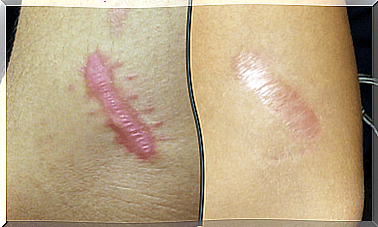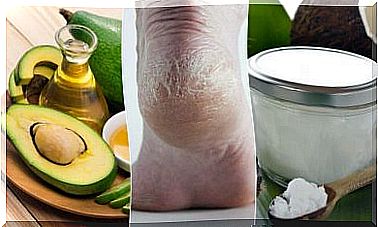Gluten-free Diet: Its Consequences On Our Health
Despite a growing demand for gluten-free diets, it is generally not advisable to follow them if you have no real health problem. But, if you still want to stick to it, then it will be better to follow the advice of a specialist.

Gluten-free diets can make you appear to be good for you, but that’s not always true. In this sense, today there is an important debate as to whether the gluten-free diet has real positive effects on our health. Or if it’s just a new fad.
The gluten-free diet for people without celiac disease

The gluten-free diet is popular today due to the growing belief that this type of diet can help with weight loss. However, this is not safe and although gluten is not an essential protein for our body, eliminating it from our diet is not recommended if it is not subject to expert advice.
First of all, it is essential to distinguish people who would be likely to be sensitive to gluten. Even who would be intolerant of it. Of course, one should diagnose these types of disorders by means of a clear analysis. If this analysis confirms gluten intolerance, then it will be important to eliminate it from the daily diet.
Therefore, it is important to keep in mind that following a gluten-free diet should be approached as a specialist treatment for people with intolerance. However, we do not recommend eliminating this component unnecessarily. This tendency obeys only a generalized belief based on false myths.
In addition, the gluten-free diet is recommended for people with inflammatory bowel disease or autoimmune diseases. It is also recommended for people suffering from hormonal or even neurological disorders. Therefore, submitting to the gluten-free diet fad should not be taken lightly, and such a decision should always be motivated by the recommendations of a nutritional professional.
In short, the most important thing is to follow a balanced diet. There will be room for foods of plant and animal origin, as well as whole grains or dairy products. Provided it is not a special need, we should avoid believing that a gluten-free diet will be good for our health.
Real gluten intolerance: celiac disease

For starters, the symptoms for detecting gluten intolerance are often related to digestive issues. In this sense, one can suffer from gas, heaviness, abdominal pain, diarrhea or constipation. But also skin problems, fatigue or sleep disorders.
The main problem with celiac disease is that it is a lifelong intolerance of unknown origin. This pathology usually causes chronic inflammation of the lining of the small intestine and progressive atrophy of the internal hairs of this organ. It will be especially important in these cases to adopt a gluten-free diet.
One of the main characteristics of people with celiac disease is that they find it very difficult to gain weight. This is due to the fact that the villi in the small intestine are not able to absorb the nutrients in products from wheat. Logically, this means that they also cannot absorb the calories from these foods. However, eliminating these products from our diet unnecessarily can cause us to lose control of our weight by becoming fatter than when we consumed them.
Sensitivity to non-celiac gluten
This type of disorder may seem similar to celiac disease. It concerns a percentage of the population between 1% and 6%. However, this is another type of problem, although it is also related to the gluten content of foods.
The diagnosis of these pathologies is based on the exclusion of gluten from the diet, as is the case with celiac disease. Some of the problems associated with non-celiac gluten sensitivity include irritable bowel syndrome, a fairly common pain. In total, it affects around 15% of the population. This problem is characterized by the appearance of abdominal pain, diarrhea or gas. Here, the gluten-free diet steps in to help reduce symptoms.
In addition, there is also an allergy to certain wheat proteins. Manifestations may vary between children and adults. In this sense, children are generally affected by a more classic allergy which often disappears during childhood.
On the other hand, these types of allergies exhibit a variety of symptoms, ranging from a classic itch to discomfort in the gut. Due to this complication in diagnosing them correctly, the only treatment option is to eliminate wheat and its derivatives. By adopting a truly necessary gluten-free diet.









